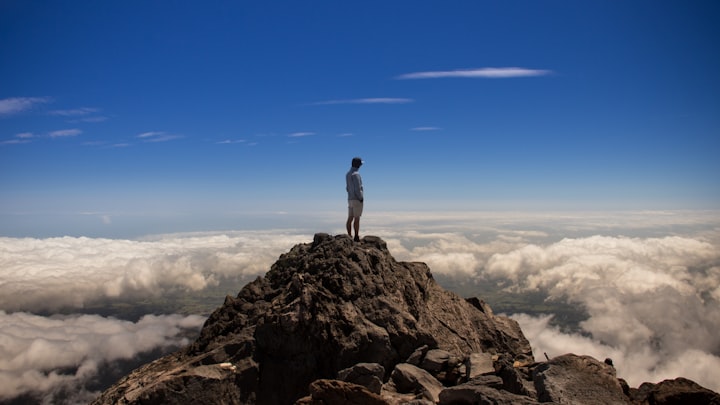3 Ways that Sleep affects your Creative Work
Where a little shut eye could change your game.

We are all feeling the pandemic brain fog. That grey noise that descends when you try to bring some spark to your work. You might be trying to write, compose or create a visual installation or for most people, you might simply be trying to bring creativity to a less directly artistic role. Every job needs an element of creative thinking. Making headway on a project can give you the satisfaction of knowing that despite everything, you have made a difference in your day.
We all know intuitively that we feel better when we have had a good night’s sleep. We feel a little better and have more bounce in our step, but sleep is so integral to our functioning that it could be having a much more profound effect than many of us imagine.
Sleep has a direct impact on the single most important factor for your contribution to a creative project, your cognitive function. Your mind is the cog in the centre of the machine for progress in your work and maintaining it is a sensible step. In both adolescents and older adults, a lack of sleep correlates significantly with decreased focus and cognitive dysfunction with evidence of memory impairment in older adults and an impact on negative risk taking behaviours in young adults. Sleeping less than recommended is more common but it is also possible to compromise your performance by oversleeping. Conforming to clinical guidelines to aim for between seven and nine hours of sleep for adults could lend you the edge, particularly since in most of the western world sleep deprivation is endemic among professional adults. At least, it may cut down on your need to break for coffee.
Sleep can also contribute to your research by keeping you from getting ill and needing to take time off work. Sleep is needed to allow your body to produce a suitable amount of cytokines, a protein your body produces related to the inflammatory response which is part of your immune response to bacterial and viral pathogens. Sleep also allows tissue regeneration to happen at an increased rate, which means any injuries or illnesses you may be suffering with already will improve at a faster rate with sufficient rest which will get you back to full strength faster. To stave off the sniffles and keep the bugs in the lab, sleeping enough can contribute by keeping you performing at your best and able to work uninterrupted.
The last contribution Sleep can make to the success of a creative is more indirect. Sleep has a close relationship with mood. Whilst researchers certainly want to achieve the optimum amount of progress, there is a significant correlative relationship between insufficient sleep and emotional reactivity and emotional disturbance. Even one night of partial sleep deprivation has measurable effects on irritability and hostility. This rattled cage feeling can feed or exacerbate depression and anxiety disorders or simply be disruptive to team work, perseverance and concentration. Sleep deprivation also decreases your ability to react positively to your small successes as part of the processes as studies show decreased positive affect in the sleep deprived. Shut eye can help you savour those moments of success and fuel the motivation to build on it. In order to perform at your best, a stable mood is a necessity.
The image of the artist, awake until sunrise brooding and ruminating is a common one but it is misleading. Authors as lauded as Maya Angelou and Haruki Murakami depend on early mornings and strict routines to allow them to create work that shakes the world. Matisse reputedly worked every single day, including a scheduled nap. Swap your midnight oil for chamomile and start looking for your muse under your own eyelids.
About the Creator
Arabella Shilling
Writer, cat wrangler, gardener and human fall out zone.






Comments
There are no comments for this story
Be the first to respond and start the conversation.